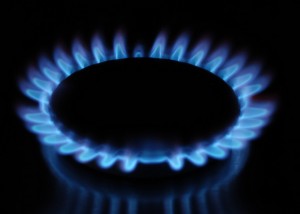The Independent Pricing and Regulatory Tribunal (IPART) has released its draft decisions on average regulated retail prices in New South Wales, proposing an increase of 17.6%.

According to the media release by IPART, the current regulated prices will apply until 30 June, when customers who have not switched to a competitive market deal will automatically be transferred to a “transitional tariff.”
The new draft decision will take effect from 1 July 2014, which means annual gas bills for households will rise by between $150 and $225, depending on their location and consumption.
IPART Chairman, Dr Peter Boxall, said its draft decisions were based on its assessment of proposals submitted by the gas Standard Retailers and that the increases were largely due to rising wholesale gas prices.
“The ability to export liquid natural gas is driving a structural change in eastern Australia’s wholesale gas market, and increasingly domestic gas prices will be influenced by what is happening in world gas markets,” he said.
“As has been the case for the last couple of years, rising gas network costs are also contributing to the regulated price increase for AGL, the major supplier of gas to NSW’s small customers. Most NSW gas consumers are already on market contracts rather than regulated prices, and we anticipate further competition among retailers as a result of electricity price deregulation. This should lead to more competitive energy pricing and better service standards for customers.”
Australian Industry Group (AIG) NSW Director Mark Goodsell said the steep rise of gas prices in NSW highlighted that the massive change to the gas industry caused by its opening up to exports was the biggest energy issue the industry faced.
“Gas exports from Queensland are raising prices across the Eastern states to export parity. And with gas production apparently lagging behind the huge growth in export-driven demand, prices could well spike above international parity. At a minimum, gas users face a doubling or tripling of the wholesale gas prices that have underpinned key sectors of our economy,” reads the media release issued by AIG.
“IPART’s job is to focus on household impacts, but industry is the biggest user of gas in the State- and it is industry that will suffer the most from the price movements that IPART is recognising. Gas is a vital feedstock for chemicals, fertiliser and explosives, and a clean efficient fuel for aluminium, cement, food processing, foundries, paper, steel and much more. Some businesses will be able to pass on their costs to households and other customers, but trade-exposed businesses won’t. That means a hit to profits, reinvestment, and ultimately jobs.”
Mr Goodsell urged the State and Federal Governments to respond and ease pressures on supply and price, to limit the impact of rising gas prices to the country’s industry.
The latest increase in gas prices would be the third consecutive increase in NSW.


















